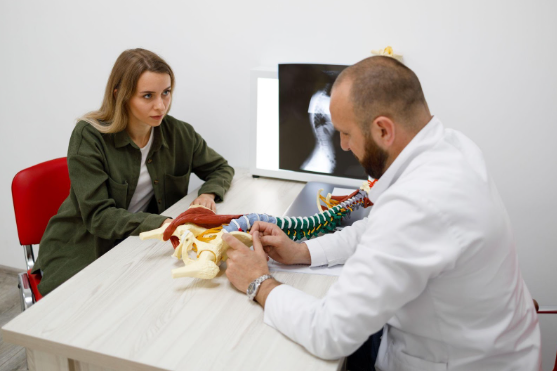
Gastroenterologist in New York NYC
June 19, 2023
Got Gas Avoid These 10 Foods Vanguard Gastroenterology
June 19, 2023Deciphering the Difference Between Gastrologist and Gastroenterologist
The fields of medicine are vast and encompass various specialties, each focusing on specific aspects of health and well-being. Two terms that often cause confusion are "gastrologist" and "gastroenterologist." While they may sound similar, these terms represent distinct medical professionals with unique areas of expertise. Understanding the difference between a gastrologist and a gastroenterologist is essential for individuals seeking specialized care for gastrointestinal issues.

Gastrologist: The Clarification:
The term "gastrologist" is not a recognized medical specialty within the field of healthcare. As of my last knowledge update in September 2021, there is no established professional role or field called "gastrologist." The confusion may arise due to linguistic similarities with "gastroenterologist." If you encounter the term "gastrologist," it's advisable to seek clarification or verify the credentials of the medical professional using that title.
Gastroenterologist: The Expert of Digestive Health:
Gastroenterology is a well-established medical specialty that focuses on the diagnosis and treatment of disorders related to the gastrointestinal (GI) tract. A gastroenterologist is a medical doctor who specializes in the prevention, diagnosis, and management of conditions affecting the esophagus, stomach, small intestine, colon, liver, gallbladder, pancreas, and other parts of the digestive system. For individuals over 50 or those at higher risk, a screening colonoscopy is an essential diagnostic tool for detecting early signs of colon health issues and preventing colorectal cancer.
Key Differences:
The primary difference between "gastrologist" and "gastroenterologist" lies in the legitimacy and recognition of the terms within the medical community:
Recognition and Education: Gastroenterology is recognized as a legitimate medical specialty with established education and training pathways. Gastroenterologists undergo extensive medical education, followed by specialized training in gastroenterology, which allows them to provide comprehensive care for a wide range of digestive disorders.
Expertise and Knowledge: Gastroenterologists have a deep understanding of the structure and function of the digestive system. They are equipped to diagnose and treat conditions such as gastroesophageal reflux disease (GERD), inflammatory bowel disease (IBD), irritable bowel syndrome (IBS), liver diseases, and more.
Diagnostic and Therapeutic Skills: A gastroenterologist is skilled in performing diagnostic procedures such as endoscopies, colonoscopies, and imaging studies to visualize and evaluate the GI tract. They also provide therapeutic interventions, such as removing polyps, performing biopsies, and conducting ERCP to treat issues affecting the bile and pancreatic ducts.
Frequently Asked Questions (FAQs)
What is the difference between a gastrologist and a gastroenterologist?
The term "gastrologist" is not a recognized medical specialty, while a gastroenterologist is a medical doctor specializing in diagnosing and treating disorders of the gastrointestinal tract.
Is a gastrologist a legitimate medical professional?
As of my last knowledge update in September 2021, "gastrologist" is not a recognized or established medical specialty. If you come across this term, it's advisable to verify the credentials of the medical professional using that title.
What conditions do gastroenterologists treat?
Gastroenterologists specialize in treating a wide range of conditions affecting the digestive system, including GERD, IBD, IBS, liver diseases, gallbladder issues, and more.
What procedures do gastroenterologists perform?
Gastroenterologists are skilled in performing diagnostic procedures such as endoscopies and colonoscopies to visualize the GI tract. They can also perform therapeutic interventions like removing polyps and conducting biopsies.
How can I find a qualified gastroenterologist?
To find a qualified gastroenterologist, consult your primary care physician for a referral, check with your health insurance provider, or search reputable medical directories.
Navigating Digestive Health:
While the term "gastrologist" is not recognized in the medical field, seeking care from a board-certified gastroenterologist is essential for addressing gastrointestinal concerns. With their specialized knowledge and training, gastroenterologists play a vital role in diagnosing, treating, and managing a wide range of digestive disorders, ensuring optimal digestive health and overall well-being.



